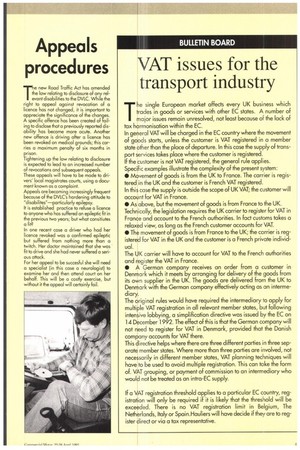Appeals procedures
Page 43

If you've noticed an error in this article please click here to report it so we can fix it.
ree new Road Traffic Act has amended the law relating to disclosure of any relvant disabilities to the DVLC. While the right to appeal against revocation of a licence has not changed, it is important to appreciate the significance of the changes. A specific offence has been created of failing to disclose that a previously reported disability has become more acute. Another new offence is driving after a licence has been revoked on medical grounds; this carries a maximum penalty of six months in prison.
Tightening up the law relating to disclosure is expected to lead to an increased number of revocations and subsequent appeals. These appeals will have to be made to drivers' local magistrates courts, using a document known as a complaint. Appeals are becoming increasingly frequent because of the DVLC's hardening attitude to "disabilites"—particularly epilepsy. It is established practice to refuse a licence to anyone who has suffered an epileptic fit in the previous two years; but what consitiutes a fit?
In one recent case a driver who had her licence revoked was a confirmed epileptic but suffered from nothing more than a twitch. Her doctor maintained that she was fit to drive and she had never suffered a serious attack.
For her appeal to be succesful she will need a specialist in this case a neurologist) to examine her and then attend court on her behalf. This will be a costly exercise, but without it the appeal will certainly fail,
















































































